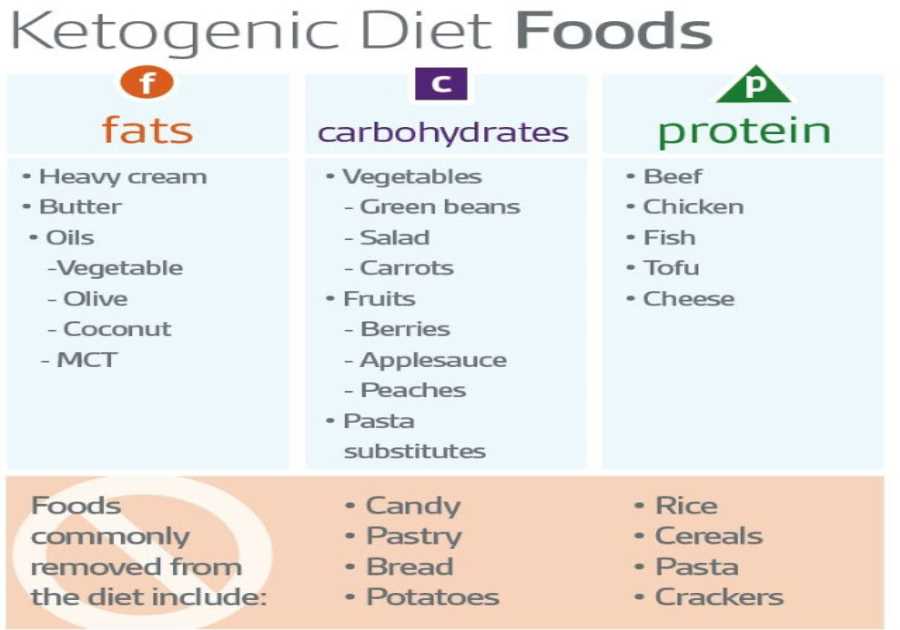
All you need to know about Mediterranean Diet
The Mediterranean diet has been heralded as one of the healthiest diets in the world, and with good reason. It is full of fresh fruits and vegetables, lean proteins, healthy fats, whole grains and legumes - all of which are essential for a balanced and nutritious diet. But what makes this particular dietary pattern so special? In this article we will explore the science behind why following a Mediterranean-style eating plan could be beneficial for your overall health and well-being.
For centuries, people living around the Mediterranean Sea have had lower rates of chronic disease compared to those elsewhere in Europe or North America. This can largely be attributed to their traditional way of eating – known today as the 'Mediterranean Diet'. This style of eating includes an abundance of plant-based foods such as olive oil, nuts and seeds, leafy green vegetables, wholegrain cereals and pulses; along with moderate amounts of fish, dairy products (such as cheese), and poultry; and occasionally red meat.
Beyond providing key nutrients needed for physical health, studies have shown that following a Mediterranean-style diet may provide additional benefits including improved mental health outcomes due to its nutrient content. So whether you’re looking to improve your physical or mental health status, read on to find out more about how adopting a Mediterranean-style eating plan could help!

Definition
What comes to mind when you think of the Mediterranean diet? Freshness, health and flavor come to the forefront. This is a style of eating that has been around for centuries but has gained popularity in recent years as more people become aware of its many benefits. The Mediterranean diet focuses on fresh fruit, vegetables, legumes, whole grains, nuts, olive oils, seafood and extra virgin olive oil - all integral components of this healthy diet.
The Mediterranean-style diet emphasizes an abundance of plant-based foods with minimal amounts of meat and dairy products. It includes a wide variety of flavors from different regions including Greece, Italy and Spain. Additionally, it encourages physical activity such as walking or biking which helps to further promote good health.
This dietary pattern consists mainly of natural ingredients like fruits, vegetables, whole grains and nuts which are rich in fiber and vitamins. It also reduces intake of processed foods high in sugar and saturated fats while eliminating trans fat altogether. Furthermore, there's an emphasis on using quality olive oil instead of butter or margarine in cooking which provides antioxidants and other beneficial nutrients.
It’s no wonder then why this type of diet has become so popular among those looking to improve their overall health and well being. From providing essential nutrition to reducing risk factors associated with certain diseases; the Mediterranean way can truly benefit any lifestyle change seeking individual who wants to experience numerous long-term rewards without sacrificing taste or satisfaction. With that said let's dive into the overview of health benefits associated with following a mediterranean style diet.
Overview Of Health Benefits
The Mediterranean Diet has been linked to many health benefits, including reduced risk of cardiovascular disease, improved heart health and increased protection from fatty acids. It's no wonder that this way of eating is gaining popularity worldwide!
Here are some specific ways the Mediterranean Diet can benefit your health:
- Reducing Risk for Cardiovascular Disease: Studies have shown that following a diet similar to the traditional Mediterranean Diet reduces the risk for developing or dying from coronary heart disease, stroke and other forms of cardiovascular disease. This is likely due in part to its high concentrations of monounsaturated fats such as olive oil and canola oil.
- Improved Heart Health: Following the Mediterranean Diet could reduce total cholesterol levels, low-density lipoprotein levels (LDL - also known as "bad" cholesterol) and increase high-density lipoprotein levels (HDL - also known as "good" cholesterol). All these effects help promote better overall heart health.
- Protection From Fatty Acids: Eating foods rich in polyunsaturated fatty acids (such as fish), monounsaturated fatty acids (like olives) and omega-3 fatty acids helps protect against inflammation and oxidative stress which are two important physiological processes related to chronic illnesses like diabetes, cancer, obesity and depression.
In addition to all the amazing health benefits associated with it, one great thing about the Mediterranean Diet is that you don't need any special equipment or ingredients to follow it. With readily available food items like fruits, vegetables, whole grains, nuts and legumes plus simply prepared seafood dishes you'll be able to create delicious meals without breaking the bank or spending hours in the kitchen!
These key components form only a small slice of what makes up this lifestyle change; next, we'll explore how different types of food groups fit into a healthy Mediterranean diet.
Food Groups
Studies have shown that following a Mediterranean diet can reduce the risk of heart disease by up to 30 percent. This is due in part to the fact that it emphasizes whole foods, such as fruits and vegetables, healthy fats from sources like nuts and olive oil, and lean proteins from fish and legumes. Here's an overview of what food groups are included on the traditional Mediterranean diet:
| Food Group | Examples |
|---|---|
| Fruits | Apples, oranges, grapes, strawberries |
| Vegetables | Spinach, broccoli, peppers |
| Grains | Breads made with whole wheat flour |
| Legumes | Chickpeas, lentils |
| Nuts & Seeds | Almonds, sunflower seeds |
| Fish | Salmon, tuna |
| Olive Oil | Used for cooking and dressings |
| Cheese & Yogurt | Feta cheese or Greek yogurt |
In addition to these mainstays of a Mediterranean diet plan, you may also include small amounts of red wine and herbs such as oregano and basil. Additionally, research has found that consuming at least one handful of nuts per day alongside this style of eating helps lower blood pressure among those who follow it. Therefore adding a handful of almonds or walnuts as an afternoon snack could be beneficial for anyone looking to incorporate more Mediterranean-style foods into their routine.
These food groups provide all essential vitamins and minerals needed for optimal health while providing delicious flavors. For example feta cheese adds a salty tanginess when crumbled over salads or roasted vegetables; olives add umami-richness when added to pizzas or sandwiches; hummus provides creaminess when used as a dip for fresh cut veggies; etc. By incorporating some of these unique ingredients into your daily meals you will soon find yourself enjoying all the benefits associated with following a Mediterranean diet group!

Macronutrients
The Mediterranean diet is a popular lifestyle among individuals seeking to maintain or improve their overall health. It's characterized by an emphasis on plant-based foods, such as fruits and vegetables, whole grains, legumes, nuts, healthy fats from olive oil, and fish. Macronutrients are the primary energy sources in the human diet: carbohydrates (starches), proteins, and fats. The macronutrient composition of the traditional Mediterranean Diet has been studied extensively for its possible health benefits; studies have shown that following this type of dietary pattern can reduce the risk of developing diabetes mellitus, coronary heart disease, and other chronic diseases at enrollment.
There are several variations of the Mediterranean Diet which include different proportions of macronutrients based on personal preferences and needs. One version is a low-fat diet with 40% total fat intake coming mainly from extra virgin olive oil while another variation includes higher amounts of monounsaturated fatty acids from nuts with 30-35% total fat intake per day. For those who don't wish to restrict calorie intake, an Energy Unrestricted Mediterranean Diet could be recommended where protein accounts for 15-20%, carbohydrates make up 55-60%, and fat should range between 25%-30%.
-
Macronutrient Composition
-
Low-Fat Version:
- Total Fat Intake : 40%
- Extra Virgin Olive Oil : Main source
-
Higher Nuts Version:
- Total Fat Intake : 30-35 %
- Monounsaturated Fats From Nuts: Major Source
-
Energy Unrestricted Version:
- Protein : 15 - 20 %
- Carbohydrates : 55 - 60 %
- Fat : 25 - 30 %
Overall, there are many ways to follow a Mediterranean style eating plan depending on individual needs and goals. Incorporating more nutrient dense sources like fruits and vegetables into meals along with incorporating unsaturated fats derived from nuts provides numerous health benefits associated with this particular dietary pattern. With these guidelines in mind you will encounter recipes and meal ideas that satisfy your taste buds without compromising your long term health outcomes.

Recipes And Meal Ideas
"An old proverb goes, 'A good meal is a pleasure to the soul'. The Mediterranean diet offers many recipes and meal ideas for those looking to lower their risk for heart disease. A sample of meals that could be included in this way of eating are outlined below:
| Meal | Food Choices |
|---|---|
| Breakfast | Whole grain bread topped with olive oil and tomatoes or a yogurt parfait made from Greek yogurt, honey, nuts, and berries |
| Lunch | Grilled fish served over brown rice with steamed vegetables on the side or bean soup paired with multigrain crackers |
| Dinner | Baked chicken breast served with roasted potatoes and asparagus or grilled eggplant slices layered with fresh mozzarella cheese and tomato sauce |
| Desserts | Fresh fruit such as oranges, peaches, or melon; dark chocolate dipped strawberries; frozen grapes; homemade baklava drizzled with honey syrup; biscotti cookies sprinkled with almonds. |
According to the Department of Health and Human Services (HHS), there is some evidence that combining all three groups into one overall mediterranean diet may reduce risk factors associated with heart disease. Eating this way can provide a variety of flavors while still staying within recommended guidelines set by HHS. With so many delicious options available, incorporating a Mediterranean diet into your lifestyle can become an enjoyable experience.
The health benefits associated with following a Mediterranean style menu include improved blood pressure levels, increased beneficial HDL cholesterol levels, reduced inflammation markers along with decreased triglycerides levels. By making smart substitutions when necessary, individuals can start creating healthier meals without sacrificing flavor."

Substitutions
The Mediterranean diet is a dietary intervention that has been associated with health benefits, such as reduced risk of chronic disease and improved mental health. However, some components of the traditional Mediterranean diet may not be realistic or feasible for many people. Fortunately, there are several substitutions to consider when looking to make a healthier alternative.
Processed grains can easily be subbed out in favor of whole grains like quinoa, oats, barley, and wheat berries. These options provide more fiber than their refined counterparts and have been linked to better long-term cardiovascular health outcomes. Additionally, you can incorporate legumes such as lentils and chickpeas into dishes instead of red meat or poultry. Legumes are packed with important vitamins and minerals while also providing an excellent source of plant-based protein.
Swapping out dairy products (such as milk) for unsweetened nut milks like almond milk or cashew milk is another great way to boost your nutrient intake without sacrificing flavor. Furthermore, extra virgin olive oil should always be used over butter since it contains monounsaturated fatty acids which helps reduce cholesterol levels. Finally, seafood should take precedence over processed meats whenever possible due to its higher content of omega-3 fatty acids which help protect against heart disease and other illnesses.
These simple swaps can bring about immense positive change in terms of our overall health - allowing us to reap the same benefits from a Mediterranean-style diet without having to adhere strictly to the guidelines of this specific cuisine. With these helpful tips in mind, let's consider how we can practice them when eating out!

Eating Out Tips
Eating out can be a challenge when following a Mediterranean Diet. Fortunately, there are ways to ensure that you don't veer off course from your diet goals while dining at restaurants. Here are some tips for eating out on the Mediterranean Diet:
- Choose whole grain options over white bread and refined grains such as pasta or pizza dough. Whole grains are higher in fiber, vitamins, minerals and antioxidants than their processed counterparts.
- Opt for lean proteins like fish, chicken, tofu and legumes instead of red meats with high amounts of saturated fat.
- Select vegetable-based dishes like salads, stews and stir-fries rather than fried foods or creamy sauces made with heavy cream or butter.
Adhering to these dietary principles has been found to lower one's risk of myocardial infarction (heart attack) regardless of educational level according to Salas-Salvadó J et al., 2009 study about the Mediterranean Diet Pyramid. Dining wisely is an important part of staying healthy while enjoying meals away from home too!
When grocery shopping to follow the Mediterranean Diet it helps to have a plan in place so that you make wise choices without feeling overwhelmed by all the food options available at stores today.
Grocery Shopping Tips
The Mediterranean Diet has been studied for its potential to help reduce cognitive decline, dyslipidemia at baseline and risk of cardiovascular disease. While shopping for groceries, it is important to remember that the foundation of the diet includes eating plenty of fruits and vegetables, whole grains, legumes, nuts and seeds. Additionally, healthy fats such as olive oil should be consumed in place of trans fats or other unhealthy oils.
When selecting food items at the supermarket, opt for fresh produce over processed foods whenever possible. Whole-grain pastas are a great way to get your daily intake of complex carbohydrates and fiber while still enjoying pasta dishes. Healthy proteins like fish can also provide essential vitamins and minerals alongside omega-3 fatty acids which have been linked with better heart health. Dairy products should come from low-fat sources like Greek yogurt instead of full fat options.
It's no secret that following an observational study based on what people eat versus controlling their diets yields different results due to human error when self reporting. However, being mindful about making healthier choices when grocery shopping will only benefit you in the long run by providing more nutritious food items into your meals throughout the week.
Making small changes within your lifestyle is key - start off slow if you're feeling overwhelmed by all this information! Don't forget to find easy ways to incorporate these tips into everyday life; you don't want them going down the drain after one shopping trip! With just a few simple modifications here and there, you'll be well on your way towards living a healthier lifestyle overall. Transitioning now into how to incorporate this diet into your lifestyle...

How To Incorporate The Diet Into Your Lifestyle
The Mediterranean diet is a unique lifestyle approach to maintaining health and well-being. It has been linked to lower risks of coronary heart disease, diabetes, and some cancers when compared to the American Diet. Incorporating this diet into your life can be as easy or complex as you make it.
First and foremost, focus on eating natural foods such as whole grains, fruits and vegetables, nuts and legumes, fish, olive oil, dairy products in moderation. Aim for variety while avoiding processed food items. Emphasizing these nutrient-dense food sources will improve digestive health by providing essential vitamins and minerals that help reduce inflammation throughout the body.
In addition to dietary changes, one must also consider portion control. Eating smaller meals more frequently during the day can help prevent overeating later on at night. Being mindful of the consumption of food is important for keeping energy levels balanced throughout the day. A good way to ensure adherence is by joining a support group or ‘control diet’ with others who are trying to adopt similar healthy habits as yourself.
Finally, strive for balance between nutrition and physical activity in order to achieve optimal results from incorporating this diet into your life style. Setting realistic goals based on individual needs is key; start small if necessary and build up gradually over time until desired outcomes are achieved. To transition into guidelines for physical activity mentioned earlier: Understanding how best to incorporate both exercise and nutrition into daily routine helps promote an overall healthier lifestyle going forward.

Guidelines For Physical Activity
Physical activity is an important part of the Mediterranean diet. Not only does it help with weight management, but also provides a variety of health benefits such as reducing the risk of heart attack and stroke. It has also been linked to improved brain health and overall well-being. The goal should be to achieve baseline adherence to physical activity guidelines set by leading experts in nutrition and health.
For adults aged 18–64 years old, the World Health Organization (WHO) recommends at least 150 minutes per week of moderate aerobic exercise or 75 minutes per week of vigorous aerobic exercise. In addition, they suggest that doing muscle-strengthening activities on two days each week can further increase one’s health benefits from exercising. For those over 65 years old, WHO suggests more than 30 minutes of daily physical activity for general well-being; however specific recommendations may vary based on individual needs and circumstances.
For people who have already had a myocardial infarction or are at risk for coronary artery disease, increased levels of physical activity may be recommended depending on their medical condition and consultation with a healthcare provider. Regular physical activity can reduce symptoms associated with chronic conditions such as arthritis and diabetes while improving strength and balance which can prevent falls and fractures in elderly individuals.
It is important to remember that even small increases in physical activity can provide significant cardiovascular protection due to its impact on blood pressure control, lipid profile, inflammation markers, and other biomarkers related to coronary artery disease prevention. With this knowledge, incorporating regular physical activity into one's lifestyle can bring many long-term positive effects regarding their overall health and quality of life. Transitioning now into supplements that could enhance the Mediterranean diet...
Supplements To Take
Supplementing with vitamins and minerals can be like adding a few extra ingredients to your Mediterranean diet recipe. While the base of this type of eating plan is fairly well established, there are some additional components that may help make it even more beneficial for health. In particular, certain supplements have been associated with reduced risk factors such as hypertension at baseline, myocardial infarction and cognitive impairment.
Cottage cheese is often recommended as an excellent source of calcium for those following the Mediterranean diet. It provides protein and other essential nutrients in addition to strong bone-building benefits. Omega-3 fatty acids are also typically included in the diet due to their many health implications; they've been linked to decreased risk of heart disease, stroke, cancer and diabetes. Taking fish oil capsules or consuming salmon, mackerel and sardines on a regular basis can provide these healthy fats while satisfying dietary requirements.
Vitamin D supplementation can also play an important role in overall wellness when following a Mediterranean style eating pattern. Increasing daily intake through fortified milk products or oral supplement pills has been shown to reduce inflammation levels which could lead to better cardiovascular outcomes. Additionally, vitamin B12 may help prevent anemia which is common among older adults who don't consume enough animal proteins from foods like eggs and meat alike.
Overall, taking key supplements alongside a balanced Mediterranean meal plan could be just what's needed for optimal health outcomes over time. By incorporating these top nutrient picks into one’s daily routine – along with exercising regularly – individuals will likely experience enhanced wellbeing both physically and mentally moving forward.

Intermittent Fasting
Intermittent fasting is an increasingly popular lifestyle choice that has been linked with various health benefits. It involves alternating periods of not eating and limited caloric intake in order to reduce overall energy consumption. A study investigating the effects of intermittent fasting on health outcomes found that it was associated with improved glucose control, increased insulin sensitivity, and reduced body weight compared to baseline visit values for diabetes at baseline as well as other medical records.
| Outcome | Result |
|---|---|
| Glucose Control | Improved |
| Insulin Sensitivity | Increased |
| Body Weight | Reduced |
The findings from this study suggest that intermittent fasting may be beneficial for those looking to improve their health status or lose weight on a Mediterranean diet. Additionally, these results were observed when using a continuous variable rather than one based on discrete categories. This suggests that intermittent fasting can have long-term positive impacts on individuals' metabolic profiles and overall wellbeing.
Overall, there appears to be great potential in incorporating intermittent fasting into a healthy lifestyle routine. As more research is conducted, we will likely gain further insight into its true efficacy and any adverse side effects related to its use. Moving forward, more investigations are needed to determine the optimal approach for clinically implementing intermittent fasting interventions within healthcare settings.
Weight Loss On A Mediterranean Diet
The Mediterranean diet has been studied extensively for its potential to promote weight loss. Rhyming in rhythm, a systematic review of the literature found that adherence to this dietary pattern was associated with significant reductions in body mass index and waist circumference compared to control diets. The 95% confidence interval indicated a statistically powerful effect on weight loss.
In summary:
- Adherence to a Mediterranean diet resulted in significant decreases in body mass index and waist circumference when compared to control diets.
- A systematic review was conducted which showed evidence of a strong statistical power regarding the effect of following the Mediterranean diet on weight loss.
- 95% confidence intervals suggested an even stronger influence on BMI/waist circumference measures than initially anticipated.
- This result is consistent with several other studies, further strengthening the notion that eating according to the principles of the Mediterranean Diet can lead to positive outcomes such as improved body composition through sustainable weight management strategies.
- Further research should be done in order to better understand how long term maintenance affects overall health markers.
It's important, however, to consider potential risks and side effects when considering any lifestyle change or dietary intervention; therefore, it’s best practice to consult with your doctor before beginning any new program or diet plan.
Potential Risks And Side Effects
The Mediterranean diet is generally considered to be a healthy way of eating, but it is important to consider potential risks and side effects when making any dietary changes. A study published in the journal Internal Medicine examined the effect of a Mediterranean-style diet on 478 people over five years. The results showed that there were no adverse effects associated with this type of diet. However, some people may experience minor digestive discomfort or fatigue due to adjustments made while adhering to this new plan.
It should also be noted that following a Mediterranean diet can have an impact on certain medications. For example, individuals taking blood pressure medication may need to adjust their dosage as their cholesterol levels change due to increased consumption of olive oil and fish oils found in the Mediterranean diet. It is always best for those considering starting this style of eating regimen to consult their doctor first before making any drastic changes.
Additionally, if you are already following another nutrition plan prescribed by your physician, it’s advised not to replace that without consulting them beforehand. Anybody considering switching diets should understand how they will be affected nutritionally so they can make sure they do not suffer from deficiencies or overeat specific food groups which could lead to other health issues down the line.
With these considerations in mind, one must decide if the benefits outweigh the potential risks and side effects when embarking on a Mediterranean Diet journey. In order to make an informed decision about whether this approach is right for you, research into sustainability of the diet should be conducted next.
Sustainability Of The Diet
The Mediterranean diet is known for its sustainability and health benefits. A recent study of over 500 Italians showed that following the traditional Mediterranean style of eating can lead to a longer, healthier life. This means it's not just beneficial in the short-term but has long-term effects on overall wellness.
One way this diet promotes sustainable health is by focusing on nutrient dense foods like fruits, vegetables, legumes, fish, nuts and olive oil; all of which are widely available and relatively affordable. These foods provide essential vitamins and minerals without any added sugars or harmful preservatives that could damage your body in the long run. Additionally, these healthy fats help keep you full for longer periods of time so you don’t have to worry about going hungry between meals or snacks throughout the day.
Another aspect that makes this dietary pattern sustainable is that it doesn’t rely on extreme calorie restriction or intense physical activity routines as other diets might require. Instead, it encourages moderation when it comes to portion sizes while still allowing room for occasional indulgences like sweets or alcohol (in moderation). Not only does this make it easier to follow in terms of food choices, but also helps promote an overall balanced lifestyle with adequate amounts of relaxation and exercise.
Finally, the Mediterranean diet emphasizes whole grains instead refined carbohydrates like white breads and pastas which are typically high in calories yet low in nutritional value. Eating more whole grains ensures we're getting important nutrients like fiber which helps regulate digestion as well as prevent chronic diseases such as diabetes and heart disease. Plus they tend to be less expensive than processed items making them more accessible for everyone regardless of income level.
Overall the Mediterranean Diet provides numerous health benefits while being easy to maintain over the long term due to its focus on fresh ingredients rather than processed convenience foods. By incorporating more plant based proteins into our diets along with moderate portions of lean proteins and good sources of fat, we can ensure proper nutrition as well as lasting health results.
Frequently Asked Questions
Is The Mediterranean Diet Suitable For People With Chronic Health Issues?
When it comes to nutrition and health, there is a lot of information out there. It's hard to know what advice is best for your individual needs. This article will look at the question: Is the Mediterranean Diet suitable for people with chronic health issues?
The Mediterranean diet has been heralded as one of the most beneficial eating styles in terms of overall wellness and disease prevention. The core principles of this style include focusing on whole grains, fruits, vegetables, nuts, legumes, fish, and healthy fats like olive oil. There is also an emphasis on limiting processed foods and red meat consumption. Studies have shown that following a Mediterranean-style diet can reduce inflammation in the body which can be beneficial for those suffering from chronic illnesses such as arthritis or diabetes.
However, it's important to remember that everyone’s dietary needs are different. If you suffer from any type of chronic illness or condition it's always wise to consult with your doctor before making any drastic changes to your diet. Your doctor may recommend specific nutritional guidelines tailored specifically to your individual medical history and needs. Additionally, if you're considering adopting a vegetarian or vegan lifestyle due to religious beliefs or ethical considerations then you should discuss these options with your healthcare provider as well.
In addition to consulting with a physician about any major dietary adjustments you make, it's also important to seek support from friends and family who understand your particular situation and can provide helpful guidance along the way. Ultimately, finding an eating plan that works for you requires knowledge about how certain foods affect your body as well as patience and commitment while experimenting with different approaches until you find what works best for you.
So when it comes to managing chronic health conditions through nutrition - talking with a qualified healthcare professional is key! They'll be able to help create an actionable plan that takes into account not only current evidence but also your personal preferences too so that together we can work towards creating lasting positive change in our lives!
What Are The Long-Term Health Benefits Of The Mediterranean Diet?
Have you ever wondered what the long-term health benefits of a certain diet might be? Well, today we're exploring just that: the potential long-term health benefits of the Mediterranean diet.
This way of eating has been studied extensively, and there's plenty of evidence to suggest that it could have significant positive impacts on physical wellbeing over time. It's important to note, however, that everyone is different - so make sure to consult with your doctor before making any dietary changes!
So, what are some of these potential benefits? Studies show that the Mediterranean diet may reduce risk factors for coronary heart disease. This includes reducing levels of bad cholesterol (LDL) while increasing good cholesterol (HDL). Additionally, this type of eating plan can help control blood sugar levels in those who have diabetes or pre-diabetes.
The Mediterranean diet also promotes weight loss and maintenance due to its emphasis on fresh fruits and vegetables as well as whole grains, nuts, legumes and healthy fats like olive oil. Furthermore, research indicates that following this pattern of eating may protect against certain types of cancer such as colorectal cancer.
In short, the Mediterranean diet offers numerous long-term health benefits which could potentially result in improved overall wellness. As always though, it’s best to check with your doctor when considering any major lifestyle changes – including switching up your dietary habits!
Can Vegetarians Or Vegans Follow The Mediterranean Diet?
The Mediterranean diet has become increasingly popular in recent years due to its rich flavors, abundance of health benefits, and adaptability. But can vegetarians or vegans follow the Mediterranean Diet? The answer is yes - this dietary plan is highly customizable and accessible to those following a plant-based lifestyle.
A vegetarian or vegan version of the Mediterranean Diet focuses on whole grains, legumes, fruits, vegetables, nuts and seeds as sources of protein. Healthy fats such as olive oil are also encouraged, along with herbs and spices for flavor. Fermented dairy products like yogurt may be included if desired by the individual. Eating fish occasionally is allowed but not necessary for optimal nutrition.
When it comes to meal planning, preparing meals at home using fresh ingredients is key. This allows individuals to control their food intake and make sure all nutritional requirements are met without sacrificing taste or convenience. Plant-based proteins like lentils or tofu should be incorporated into dishes regularly to ensure adequate protein intake while avoiding animal products altogether. It's also important to remember that variety is essential when it comes to ensuring balanced nutrition; don't eat too much of one type of food over another!
Careful consideration must be taken when following a vegan or vegetarian version of the Mediterranean Diet since some nutrients can easily go missing from an otherwise healthy eating plan. Vitamin B12 deficiency is particularly common among vegans so supplementation will likely be required for optimum wellbeing. Additionally, adequate calcium intake should be monitored due to limited options for obtaining this bone-building nutrient without consuming dairy foods. With careful planning and mindful eating habits however, a vegetarian or vegan Mediterranean Diet can provide great health benefits with minimal effort!
Is The Mediterranean Diet Suitable For Children?
Are you wondering if the Mediterranean diet is suitable for children? You may be surprised to learn that this style of eating has many benefits and can be adapted depending on age. In this article, we'll explore why it's a great choice for kids and how to make sure they get all their essential nutrients.
Let's start by taking a look at what makes up the Mediterranean diet. Generally speaking, it's based on consuming foods like fruits, vegetables, legumes, nuts, whole grains, fish and olive oil in place of butter or other saturated fats. It also eliminates processed foods as much as possible. This way of eating gives your child access to an abundance of vitamins, minerals and antioxidants – something no parent could argue with!
When adapting the Mediterranean diet for children, portion sizes should obviously be adjusted according to age. Parents should aim to include plenty of colorful plants while limiting sugar-laden treats and processed snacks. Whole grains such as oats and quinoa provide energy and help keep hunger in check throughout the day - so don't forget them either! Fish offers protein plus omega-3 fatty acids which are important for brain development; try incorporating salmon once a week or more often if desired.
So whether your family is looking for healthy meal ideas or simply trying to foster good habits from an early age, there really isn’t anything better than the Mediterranean diet! With its focus on fresh ingredients and avoiding unhealthy fats and refined sugars, it provides just about everything little ones need (and nothing they don't) while still tasting delicious enough that even picky eaters won’t turn away. As long as portion sizes are appropriate for each individual child, parents have every reason to feel confident introducing this lifestyle into their home.
How Can I Maintain A Healthy Weight With The Mediterranean Diet?
Maintaining a healthy weight is an important part of leading a balanced lifestyle. It can be especially challenging to find the right diet that works for you and accommodates your needs. Many people have heard of the Mediterranean Diet, which has been praised for its potential health benefits and ability to promote weight loss. But how can someone maintain a healthy weight with this particular diet?
The Mediterranean Diet is largely based on fruits, vegetables, whole grains, nuts, legumes, olive oil, fish, and lean protein sources such as poultry or eggs - all foods proven to support overall wellness. By focusing on plant-based options and limiting processed meats and refined sugars from one's diet, it will help in achieving optimal nutrition while keeping calories low enough to aid in maintaining a healthy weight.
In order to make sure one stays on track with their nutritional goals while following the Mediterranean Diet, creating meal plans ahead of time is recommended. This allows individuals to plan out their meals according to what they are allowed and need nutritionally without having to worry about overindulging in unhealthy items. Additionally, monitoring portion sizes during each meal helps prevent overeating so that the person can stay within the caloric limits necessary for sustaining their desired bodyweight.
Physical activity also plays an essential role when trying to achieve a healthier body weight through dietary changes alone. Regular exercise helps boost metabolism which aids in burning more fat faster than if someone were sedentary; plus it keeps energy levels up throughout the day! Incorporating activities such as walking or running into one’s daily routine will not only help one reach fitness goals but may even improve moods by releasing endorphins produced during physical exertion – making it easier to stick with the Mediterranean Diet long-term.
By planning meals ahead of time while still enjoying delicious food choices along with regular physical activity – anyone looking towards the Mediterranean Diet as a means of promoting healthy body weight should have no problem achieving success!
Conclusion
In conclusion, the Mediterranean diet is a healthful and sustainable way of eating for people with chronic health issues. It has been shown to provide numerous long-term health benefits such as the reduced risk of cardiovascular disease and improved overall well-being. Vegetarians and vegans can easily follow this type of diet by incorporating plant-based proteins into their meals. The Mediterranean diet is suitable for children too - provided they eat a variety of nutrient-dense foods in moderation. To maintain a healthy weight, it's important to practice mindful eating habits while also focusing on portion control; think of your plate like a clockface, with half filled with vegetables, one-quarter lean protein sources, and one-quarter complex carbohydrates. Eating the Mediterranean way is like taking a journey through time – its flavors are timeless reminders that wholesome food doesn't have to be boring or complicated but instead can nourish both body and soul!
Statistics
- Aim to get 20 to 35 percent of your total daily caloric intake from fat, and for saturated fats to represent less than 10 percent of your total caloric intake, advises the U.S. Department of Health and Human Services. (everydayhealth.com)
- In one study, the healthiest eaters at age 50 had a nearly 90% lower risk of dementia than those with the least healthy diets. (heart.org)
- Benefits of Replacing foods high in saturated fats (like butter) with plant sources high in monounsaturated fatty acids, like olive oil, may help lower the risk of heart disease by 19 percent, according to research. (everydayhealth.com)
- Choose fat-free or 1% milk, yogurt, and cottage cheese. (my.clevelandclinic.org)
External Links
oldwayspt.org
health.usnews.com
- Mediterranean Diet Beginner's Guide: Ranked #1 Best Diet in 2023 | U.S. News
- The Best Diets in 2023 – Expertly Reviewed by US News Health
pubmed.ncbi.nlm.nih.gov
- Health Benefits and Molecular Mechanisms of the Mediterranean Diet - PubMed
- PubMed: Cardiovascular Health and The Mediterranean Diet - PubMed
researchgate.net
- (PDF). The Association Between Dietary Patterns AND Insulin Resistance: Systematic Review
- (PDF). Citrus as an ingredient in the Mediterranean diet
Resources:
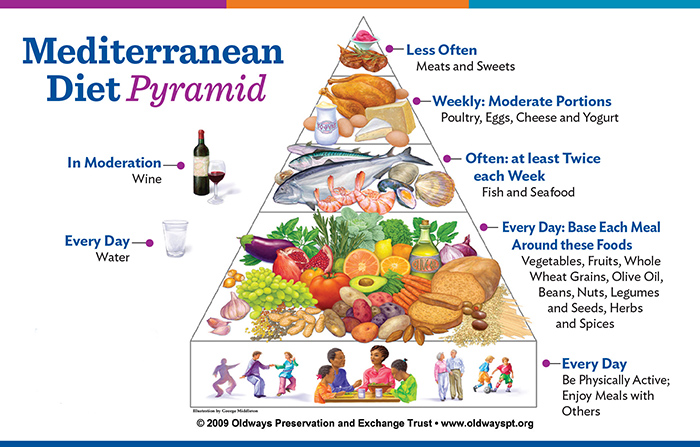 | 8 ways to make the Mediterranean diet work for youDining on seafood and toasting with a glass of red wine are just two vacation-worthy habits you can enjoy on the regular — and get health benefits, too. Get |
 | Top 10 Mediterranean Foods You Should Be EatingPlease hit that red SUBSCRIBE button! Use this link and choose Primal Kitchen as your free gift and get 25% off your first purchase with Thrive: |
 | Mediterranean Diet - How to Make Chicken Stir Fry with Doctor Mike HansenWhat is the Mediterranean diet? The Mediterranean diet is a way of eating that's based on the traditional cuisines of Greece, Italy and other countries that |
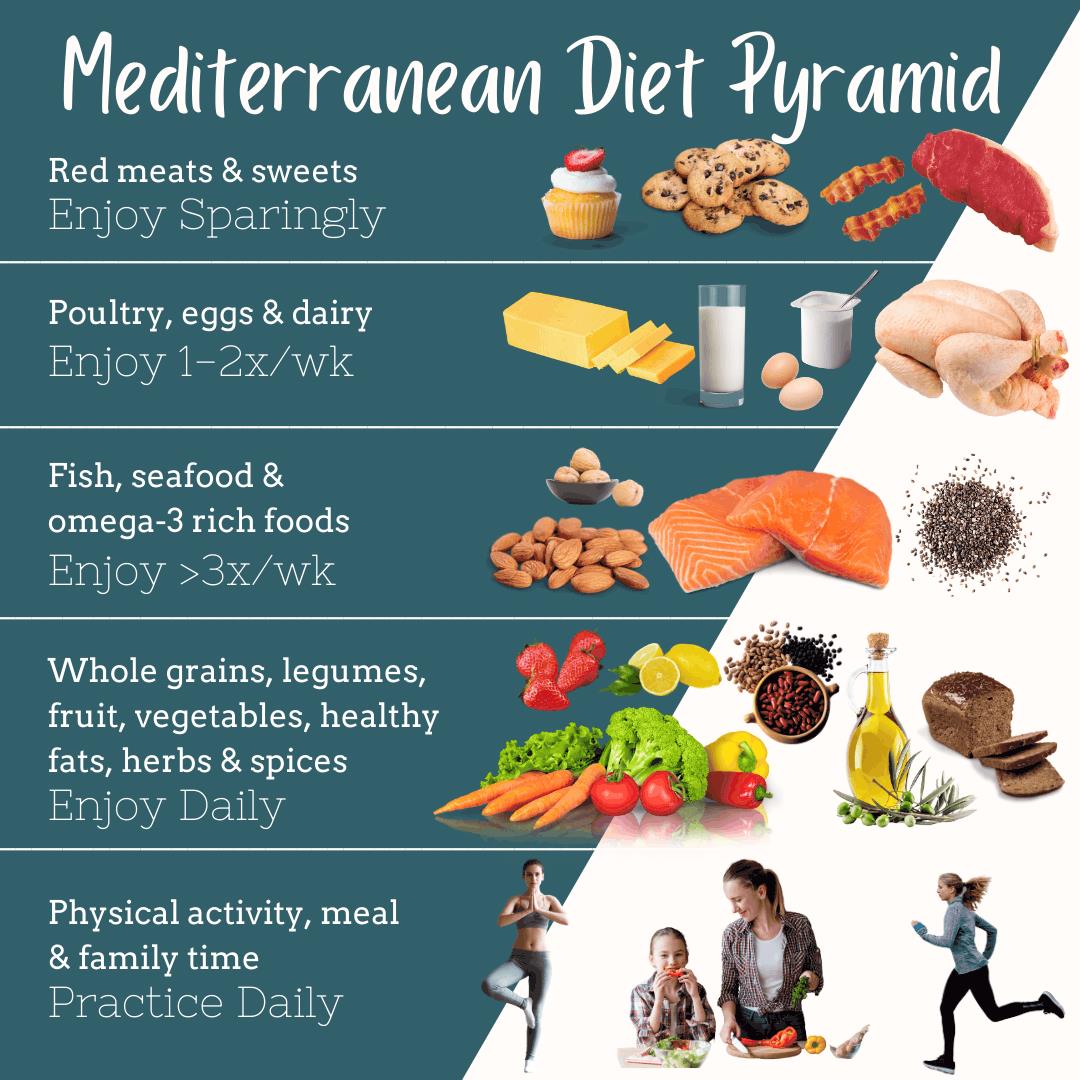 | How to Lose Weight on the Mediterranean DietThe Mediterranean Diet has been rated the #1 diet by U.S. News & World Report for the 6th year in a row! But what about weight loss? Well, the Mediterranean |
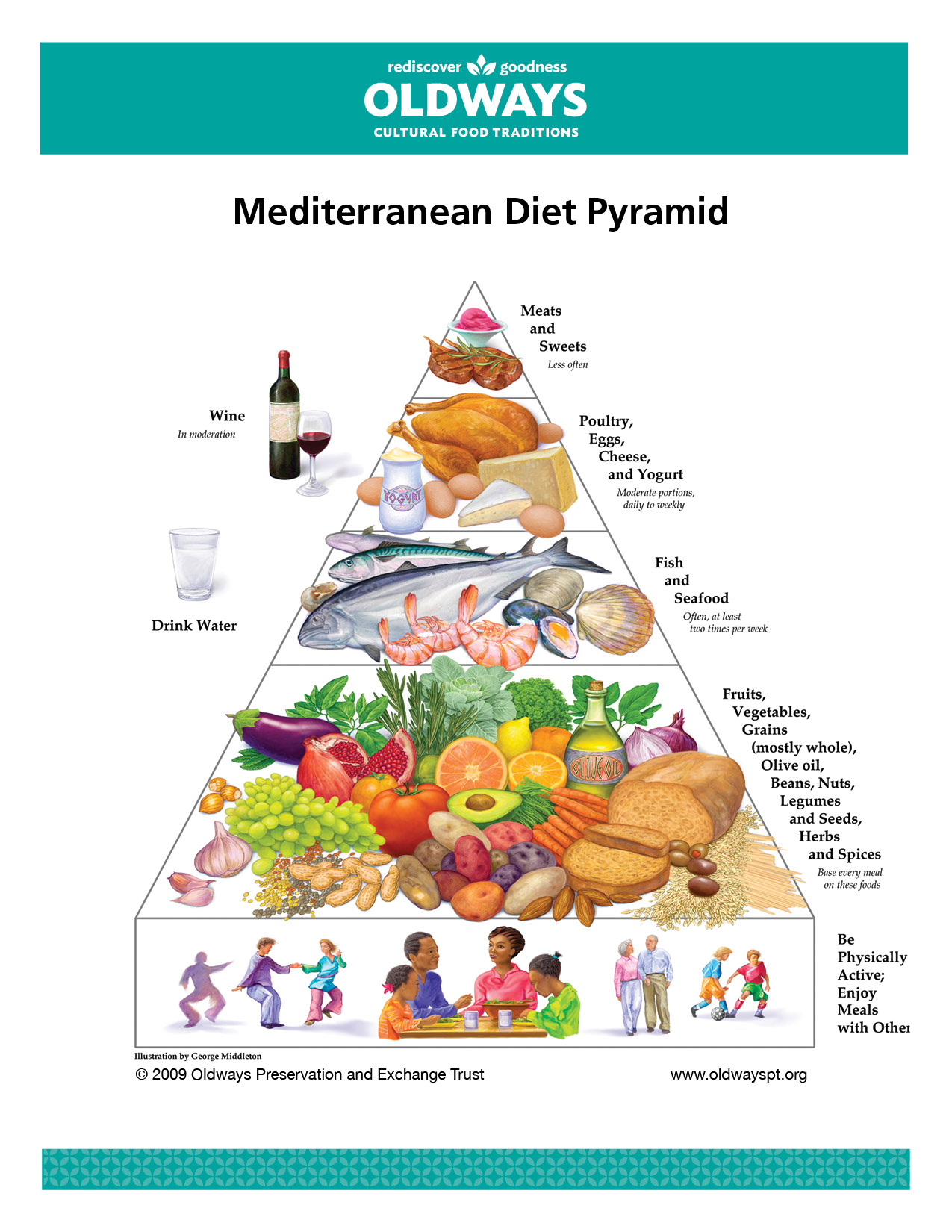 | Mediterranean diet, our legacy, our future | Elena Paravantes | TEDxHeraklionThis talk was given at a local TEDx event, produced independently of the TED Conferences. Elena Paravantes explains the history of portrayal of the |
 | The Mediterranean Diet: From an Environment-Driven Food Culture to an Emerging Medical PrescriptionThe Mediterranean diet originates in the food cultures of ancient civilizations which developed around the Mediterranean Basin and is based on the regular |
 | The Mediterranean Diet: Pros & ConsWhat are the pros and cons of the Mediterranean Diet? Well, the Mediterranean Diet has been rated the #1 diet because it's healthy, sustainable and |
 | Mediterranean diet and brain health: Mayo Clinic RadioDr. Maria Vassilaki, an epidemiologist at Mayo Clinic, shares the latest research on how the Mediterranean diet affects brain health. This interview originally |
 | Fit Facts: Benefits of a Mediterranean DietWant to try the Mediterranean diet, but not sure where to start? Here are some key ingredients to add to your shopping list. Learn more at |
 | Mayo Clinic Minute: Mediterranean Diet Fast FactsThe Mediterranean diet is billed as a heart-friendly plan that improves health and prevents disease, but it’s is more than a just list of dishes. In this Mayo |
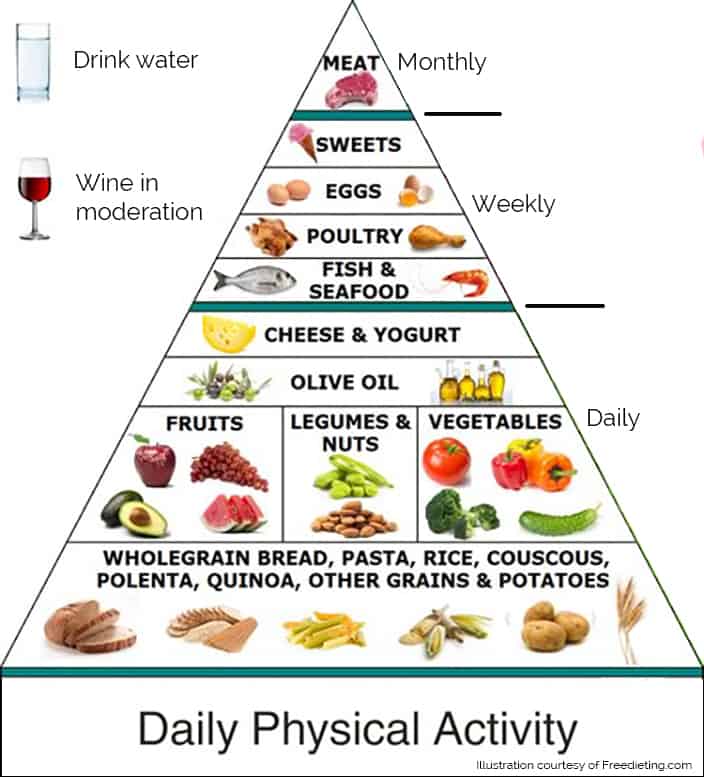 | How to Start the Mediterranean Diet to Lower Blood Sugar & Lose Weight FASTUse Code THOMAS20 for 20% off House of Macadamias: http://houseofmacadamias.com/T... Complete Guide to the Mediterranean Diet This video does contain a |
 | 5 Studies on the Mediterranean Diet — Does It Really Work?This review of five human studies on the Mediterranean diet examines its effects on weight loss, various diseases, and the risk of death. |
 | Greek Chicken GyroGreek Chicken Gyro, a healthy alternative to the classic Greek gyro you’d find at Greek festivals around the world. Yes, it’s true. We love a delicious gyro |
 | Mediterranean Shrimp Stir FryMediterranean shrimp stir fry – a simple, delicious and healthy way to serve up a Greek inspired dinner. One of our favorite things to do while we’re in the |
 | Homemade Pita ChipsHomemade Pita chips are a healthy and delicious snack. See our pita chip recipe below. If you’re looking to make pita from scratch as well, we’ve got you |
 | Kreatopetes | Greek Meat TrianglesYou can think of kreatopetes as small personalized kreatopitas wrapped in delicious buttery flakey phyllo (filo). Yes, we think they’re yummy and we’re excited |
 | Caramelized Onions And Feta Phyllo CupsCaramelized onions are one of my favorite things to make. They just add such a delicious flavor to dishes. Combine them with feta and phyllo and wow, you’ve |
 | Definitions and potential health benefits of the Mediterranean diet: views from experts around the world - BMC MedicineThe Mediterranean diet has been linked to a number of health benefits, including reduced mortality risk and lower incidence of cardiovascular disease. |
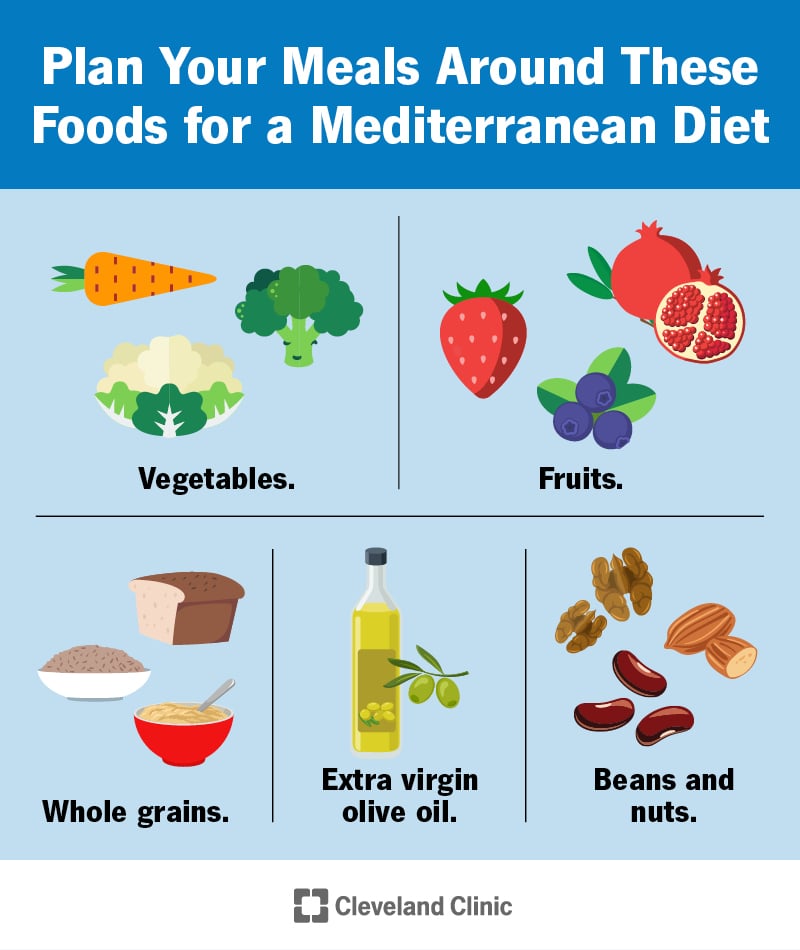 | Healthline Names Mediterranean Diet One of the 6 Best Diets for Heart HealthHealthline ranked the Mediterranean Diet number 1 for the following reasons: Numerous studies associate the Mediterranean diet with a reduced risk of heart |
 | The Brain Benefits of a Mediterranean DietPsychology Today reports: Eating more green, leafy vegetables and less red meat were associated with improved cognitive functioning in a recent study of older |
 | Mediterranean Diet Best for Those With Long COVIDCNBC reports that Joan Salge Blake, Boston University’s clinical professor of nutrition says: “‘Poor protein [intake] can contribute to fatigue, and that’s the |
 | Researchers Find Mediterranean Diet Reduces ObesityAccording to Olive Oil Times: The authors of the meta-study, published in Current Obesity Reports, noted that hypertension, type 2 diabetes mellitus, several |
 | Mediterranean Diets are Safer than Keto Diets for Controlling Blood SugarThe study described in The Epoch Times found: In the conclusions of this study, the authors prefer the Mediterranean diet over the Keto diet because the key to |
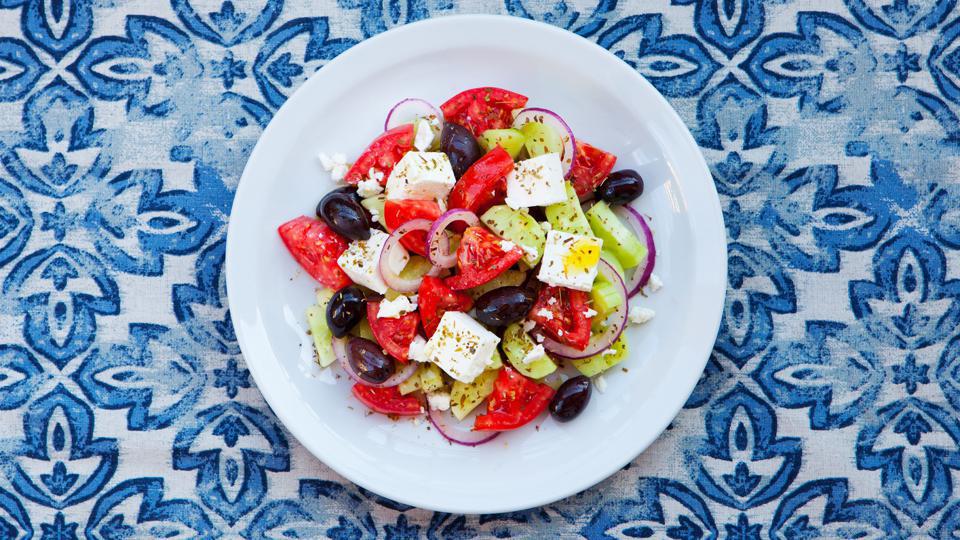 | What Is The Mediterranean Diet? Benefits, Risks And MoreThe Mediterranean diet, with its emphasis on fresh vegetables and fruit, whole grains, legumes, olive oil and fish, provides an array of health benefits, |
 | 20 Best Mediterranean Diet Snacks (At Home and Store-Bought)These 20 Mediterranean Diet snacks are what you need to snack in a healthy, sustainable way. We've included 5 you can purchase right now and 15 more you can |
 | Tomato Soup with Oregano PestoNow, there are many ways to jazz up tomato soup. You can add cream, mozzarella cheese, croutons… or a drizzle of pesto. Today, we’re obviously focusing on the |
 | A Beginner’s Guide to the Mediterranean Diet for Weight LossEmbark on a culinary adventure with our Beginner's Guide to the Mediterranean Diet for Weight Loss! Discover the vibrant and healthy flavors of the |
 | Mediterranean Veggie Scrambled EggsThis veggie scrambled eggs recipe is one of my favorite breakfast recipes. Here’s why: It’s so easy to make and only takes about 20 minutes to prep and cook. |
 | Mediterranean Herbs and Spices: A Beginner’s GuideSeasonings and spices—plant-based aromatic substances, fresh or dried, are used for flavoring and aroma more than nutrition. But they also enhance food with |
 | Mediterranean diet for heart healthThe Mediterranean diet is a heart-healthy eating plan that emphasizes healthy fats, whole grains, fruits, vegetables, beans, nuts and seeds. |
 | Spicy Yogurt Sauce that You’ll Put on EverythingA simple condiment, this Spicy Yogurt Sauce features creamy greek yogurt, garlic, lemon, hot sauce and spices to create the dip of our dreams.The post Spicy |
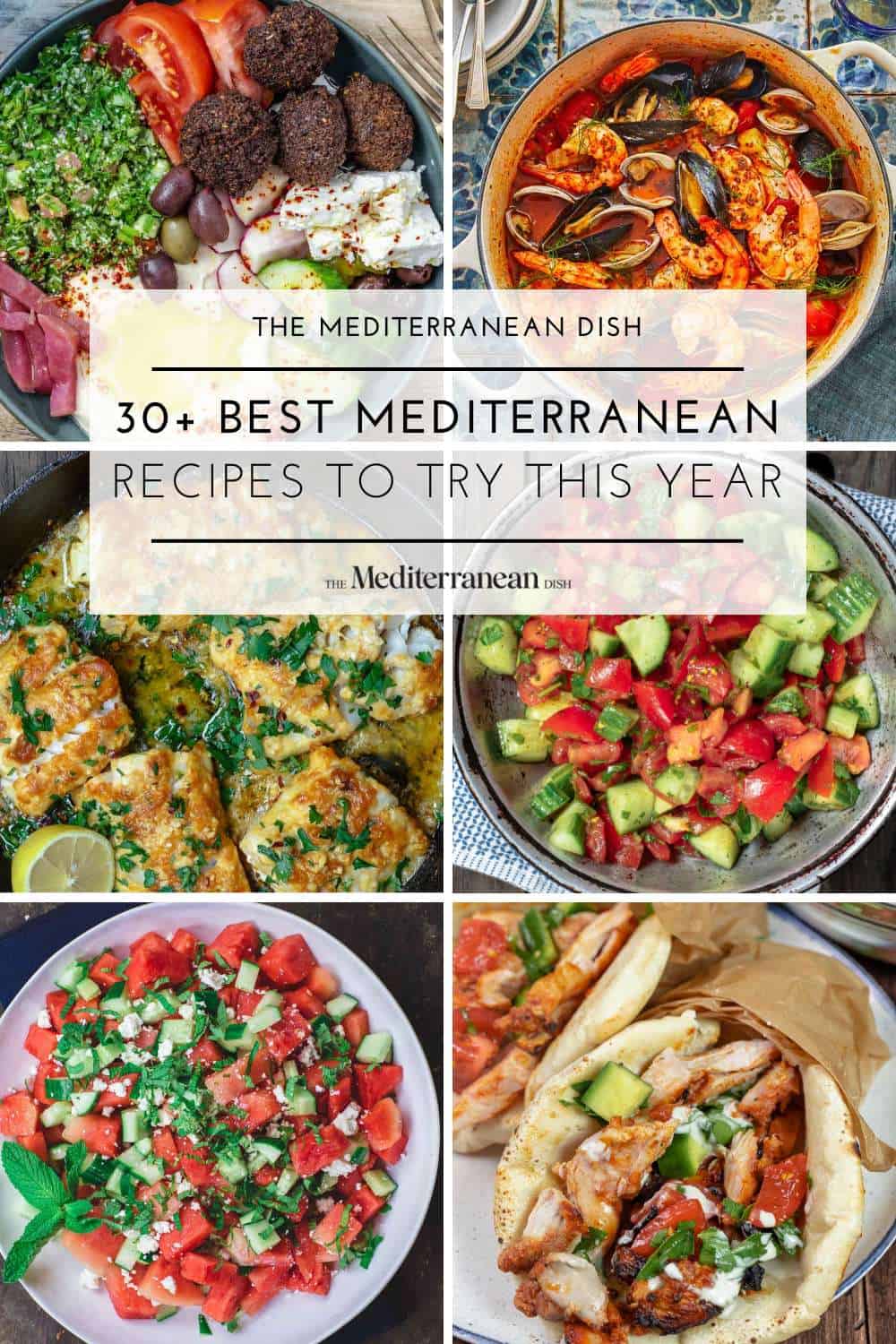 | Mediterranean Diet Meal Plan Week 38A weekly series where we share our family’s actual Mediterranean diet meal plan. The goal is to simply share meal and recipe ideas.The post Mediterranean Diet |
 | Avocado Toast and Fruit PlateTaking the avocado toast we all know and love but adding a fresh fruit and heart healthy salmon to a balanced plate perfect any time of day.The post Avocado |
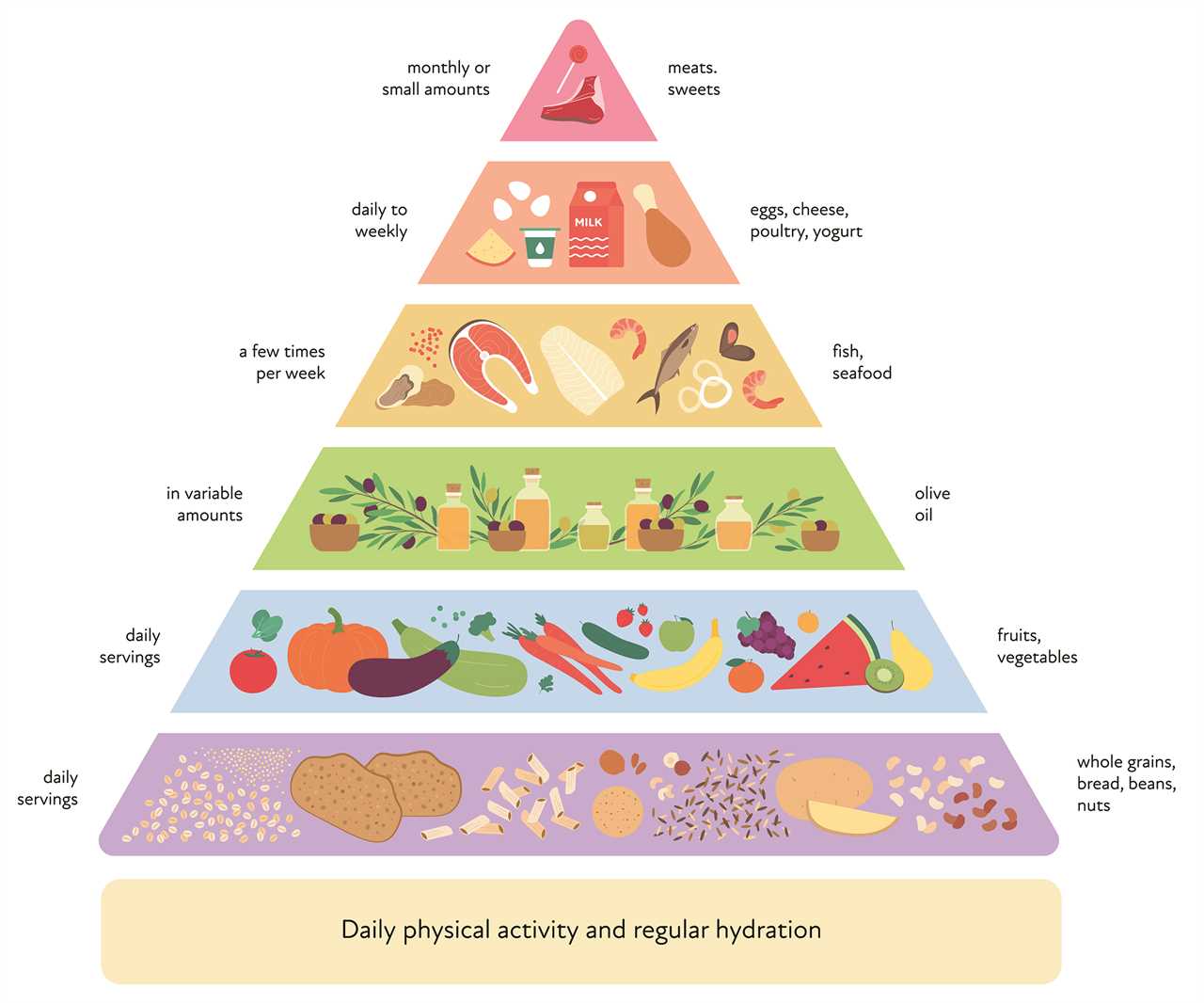 | Souvlaki Inspired Grilled Chicken Platter with Spicy Yogurt SauceA twist on souvlaki, this grilled chicken platter features lemon & herb marinaded chicken, simple but flavorful veggies & spicy yogurt sauce.The post Souvlaki |
 | Mediterranean Diet Meal Plan Week 39We share our family’s weekly Mediterranean diet meal plan simply for meal ideas and recipe inspiration for anyone else looking for suggestions. Please keep in |
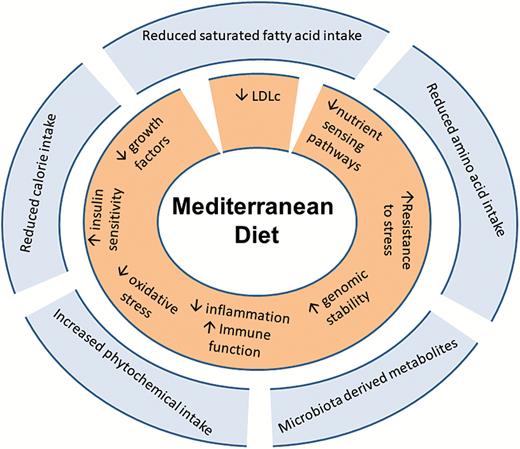 | Health Benefits of the Mediterranean Diet: Metabolic and Molecular MechanismsAbstract. Consuming a Mediterranean diet rich in minimally processed plant foods has been associated with a reduced risk of developing multiple chronic diseases |
 | The Green Mediterranean Diet: Everything You Need to KnowSo by now, you probably know all about the Mediterranean Diet. It’s something I’ve talked about…well, pretty much every chance I get! This diet is about |
 | All About Feta, Greece’s Most Famous CheeseIs there a better cheese than feta? Salty, slightly sour, earthy, and packed in brine, it’s probably my favorite to include in everything from casseroles to |
 | Homemade Phyllo PastryTo make this classic Greek recipe for homemade phyllo pastry is a lot easier than most people think. I devote a class to it and to the wonderful seasonal |
 | Phyllo Pies – Perfect Mediterranean Diet Lunch!When I get hungry in the middle of the day, there are so many Mediterranean diet lunches I depend on. There are great salads , of course, and a number of soups |
 | Orange Crush Greek Yogurt SmoothieIf anyone remembers and loves the flavors of a creamsicle, that classic 1960s ice cream pop sold off of carts on the street you’ll love this orange crush Greek |
 | Take Your Diet to the MediterraneanIt’s an easy (and delicious!) change that can turn your diet into a disease-fighting tool. |
 | Mediterranean Diet Rated The Best Overall For 2023Once again, the Mediterranean Diet ranks #1 in Best Diets Overall. It is based on the traditional way of eating in the 21 countries that border the |
 | Easy Shawarma-Spiced ChickenThis Easy Shawarma-Spiced Chicken is full of flavor and tantalizes your taste buds with the flavors of the Middle East. It is an easy stovetop version of the |
 | Simple Gluten-Free Minestrone Soup with QuinoaCold winter days call for a hearty, rich, comforting soup. This Simple Gluten-Free Minestrone Soup with Quinoa is a twist on the classic Italian dish. Adding |
 | Easy Baked Falafel with Lemon-Tahini SauceThese easy baked falafel with lemon-tahini sauce are crispy from the outside, light tender, crumbly from the inside, and full of bright, Mediterranean flavors. |
 | Easy Baked Spinach and Feta Cheese FrittataThis Easy Baked Spinach and Feta Cheese Frittata is a breeze to make and comes together in less than 30 minutes! Ideal for a weekend brunch, a hearty and |
 | The Mediterranean Diet - HelpGuide.orgThere are many misconceptions about the Mediterranean diet. Learn what it really means and how it can help you live a healthier, longer life. |
 | Mediterranean Lifestyle Challenge 2023 – Day 3Welcome to Day 3 An important aspect of our health is our body weight. One of the characteristics of…The post Mediterranean Lifestyle Challenge 2023 – Day 3 |
 | Mediterranean Lifestyle Challenge 2023 – Day 4Welcome to Day 4 What we drink is as important as what we eat when it comes to health…The post Mediterranean Lifestyle Challenge 2023 – Day 4 appeared first on |
 | Mediterranean Lifestyle Challenge 2023 – Day 5Welcome to Day 5 Today is all about activity. Research shows that consistent and natural activity is key to…The post Mediterranean Lifestyle Challenge 2023 – |
 | Mediterranean Lifestyle Challenge 2023 – Day 6Welcome to Day 6 Mental health is an important component of living a long and happy life. The World…The post Mediterranean Lifestyle Challenge 2023 – Day 6 |
 | Mediterranean Lifestyle Challenge 2023 – Day 7Welcome to Day 7 We have reached the seventh and final day of the Mediterranean Lifestyle Challenge! Congratulations on…The post Mediterranean Lifestyle |
 | Researchers explore Mediterranean diet and its health benefits in managing obesityA review article published in the journal Experimental Gerontology describes the utility of Mediterranean diet (MedDiet) in the prevention and management of |




